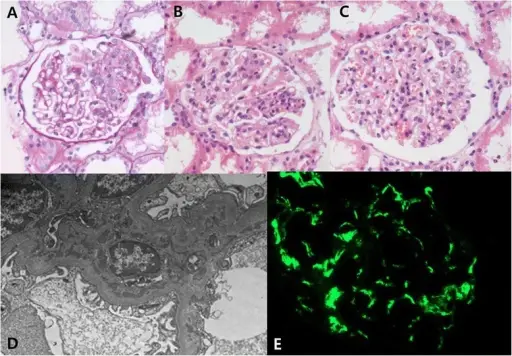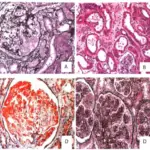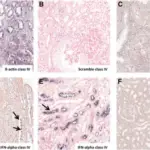Henoch-Schonlein purpura is an acute immunoglobulin A mediated disorder that is characterized by inflammation of the small blood vessels of the kidney.
What is the Pathology of Henoch-Schonlein Purpura?
The pathology of Henoch-schonlein purpura is:
-Etiology: The cause of Henoch-schonlein purpura is Ig A.
-Genes involved: Unknown.
-Pathogenesis: The sequence of events that lead to Henoch-Schonlein purpura occurs when the underlying infections cause production of the IgA immune complexes that become deposited in the walls of the kidney and the mesangium. These accumulation causes inflammation hence causing glomerulonephritis.
-Morphology: Not applicable.
-Histology: The histology associated with Henoch-Schonlein purpura shows mesangial proliferation, small crescents, infiltration of neutrophils.
How does Henoch-Schonlein Purpura Present?
Patients with Henoch-Schonlein purpura typically both male and female present at the age range of 6 years. The symptoms, features, and clinical findings associated with henoch-schonlein purpura include palpable purpura, arthralgia, abdominal pain, renal disease, headache, anorexia, fever.
How is Henoch-Schonlein Purpura Diagnosed?
Henoch-Schonlein purpura is diagnosed by physical examination, history taking, blood tests, urinalysis, ultrasound and biopsy.
How is Henoch-Schonlein Purpura Treated?
Henoch-Schonlein purpura is treated with supportive care, good hydration, pain medication, glucocorticoids, immunosuppressors.
What is the Prognosis of Henoch-Schonlein Purpura?
The prognosis of Henoch-Schonlein purpura is good since it resolves completely.



